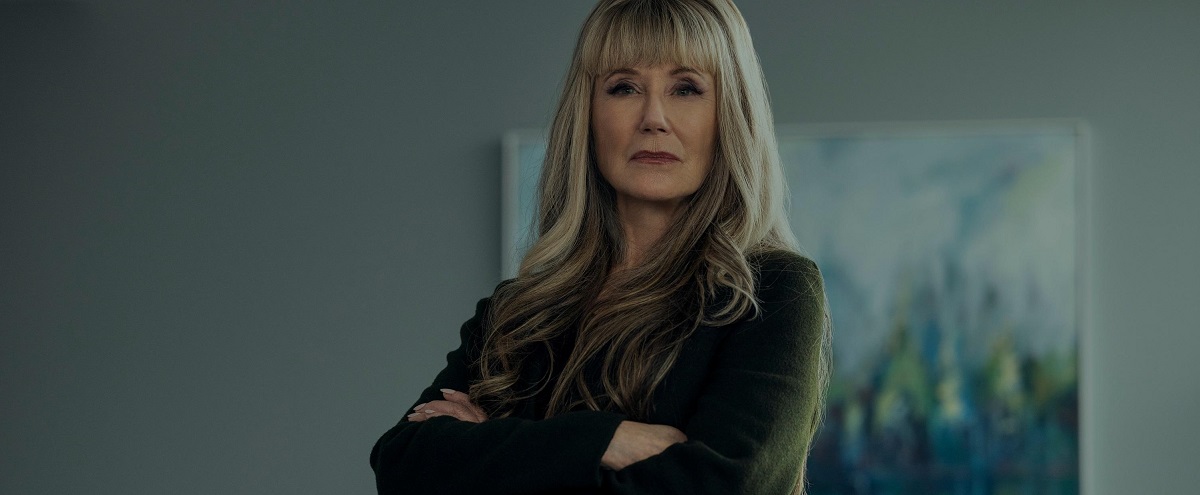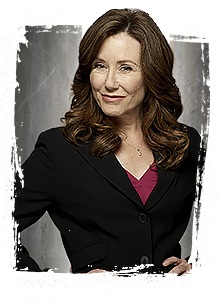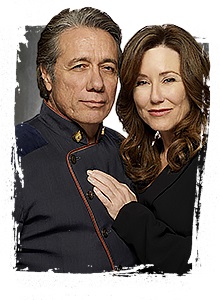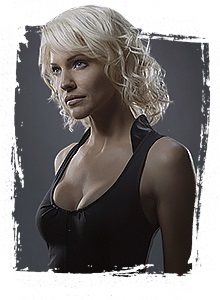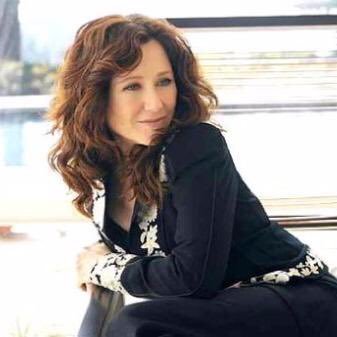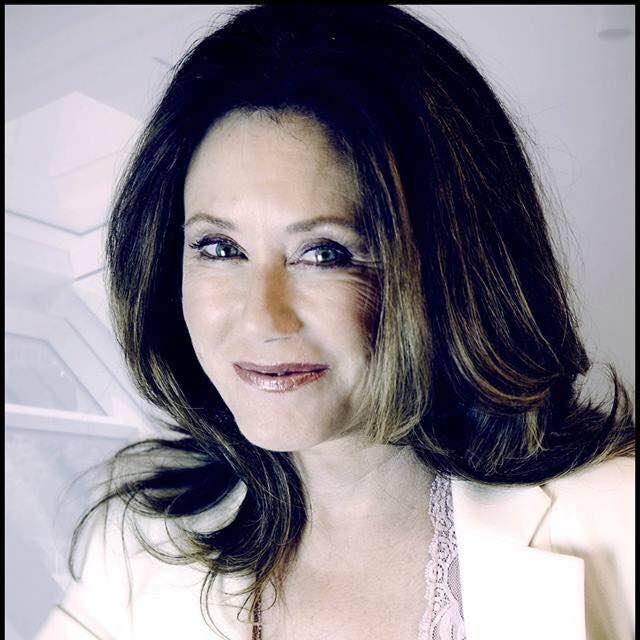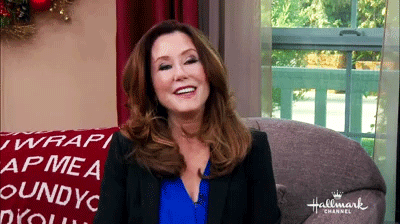
Tavis Smiley: Full Transcript
N/A
January 9, 2014

The two-time Oscar nominee talks about her role as Capt. Raydor, first seen in The Closer and now in the spin-off series, Major Crimes.
Long known for her work in the theater and on both the big and small screens, Mary McDonnell has an impressive array of credits. Her extensive film work includes Independence Day, Oscar-nominated turns in Dances with Wolves and Passion Fish, and Margin Call. She earned rave reviews for her performance in the Peabody Award-winning series Battlestar Galactica and an Emmy nomination for her recurring guest role on the TV series, ER. McDonnell began her career in the theater and was a member of the Long Wharf Theatre Company for more than two decades. She currently stars in the hit TNT spin-off series, Major Crimes, which is wrapping its second season.
TRANSCRIPT
Tavis: Oscar and Emmy-nominated actress Mary McDonnell has an impressive array of movie credits to her career, including “Dances with Wolves.”
But now she’ll be probably forever linked and identified as Captain Sharon Raydor, first seen in “The Closer,” of course, and now leading many of the same team members in that TNT spinoff series called “Major Crimes.” Let’s take a look at a clip from the series, now wrapping up its second season.
[Clip]
Tavis: This has to be the smoothest spinoff in the history of television. (Laughs)
Mary McDonnell: Oh, thank you.
Tavis: You guys did this so smooth-like.
McDonnell: Well, it’s an unusual situation, because most of the characters came along, and we were still in the same location. It was basically the same story. So a lot of spinoffs go into a new setting, they take one character and go into a different environment.
This spinoff stayed in the environment and took one character and put her into a different professional position inside of it. So we were able to move it forward in a more organic manner than I would say other spinoffs, and it was highly successful, so we’re really thrilled.
Tavis: Well, successful also, I think, Mary, because it doesn’t feel to me, and I suspect other fans, it doesn’t feel like it’s in the shadow of “The Closer.”
McDonnell: Right, right. Well –
Tavis: It has its own identity.
McDonnell: It does indeed, and James Duff wrote it into a new form, and he wrote it sort of gracefully and organically. One of the things that we were all very committed to was not asking the audience or trying to push the audience into feeling one way or the other about it.
But hopefully allow them to get used to the new form with us, and all those beloved characters were still there, so there was real attachment. The fans stuck, and they’re growing, so we’ve been really happy.
Tavis: Let me pick up on your world “beloved,” because you were anything but beloved.
McDonnell: I know.
Tavis: (Laughs) You know where I’m going with this, right?
McDonnell: Yeah, I do.
Tavis: You were anything but beloved in “The Closer.”
McDonnell: Yeah, I know.
Tavis: Speaking of smooth spinoffs, you’ve done like a 180 here.
McDonnell: I have.
Tavis: So you were not beloved in “The Closer.”
McDonnell: No.
Tavis: Yet now you play a character that I – I can’t speak for all your fans, but I think a character that’s more likeable now than you were.
McDonnell: Oh, she’s much more able to be herself is the way I look at it. Literally, I was hired to come in and do three episodes to be the antagonist for Kira, and to really drive her crazy. That was my job – (laughter) to drive them all crazy.
Tavis: And you did it well.
McDonnell: And I did it well, and –
Tavis: You did it very well.
McDonnell: – I had a blast, once I got used to it and I understood where’s the power in not being liked; where’s the power in wanting to be separate from people, because I’m not that way. I’m, like, a connector.
Once I understood where that power was, I loved it, so that when they presented me with this new idea and I said, well, how do you take a person that everyone loves to hate and put them at the center as the protagonist.
I didn’t understand quite how it would happen. Then we talked about it, and it was more – the idea was that we would unfold a woman to an audience that saw her in one way.
We do make all kinds of judgments about people. We make pre-judgments. We see them in one capacity and we think we know them. So this has been a kind of unfolding of a woman.
Tavis: When you said a moment ago that you had to discover where the power was in playing a character that is so unlikable, tell me more about what you discovered in that regard.
McDonnell: What I discovered is that for me, as an actress, one of the most essential things that I need to know is what do I want for and from the people around me in the story.
What is my offering, and what is my need. Quite often, the need with any human being is to be loved, to be liked, to be connected to. Sharon Raydor, whenever I applied that, or tried to discover what she wanted from them, that would not work.
So I’d feel nervous or insecure. So what I discovered pretty early on – this was even in working by myself with the script – is that her need was to have them not get comfortable with her.
She was the internal affairs person. She was policing the police. She didn’t want them to like her. She didn’t want them to try and seduce her into liking them. She wanted distance. She didn’t care.
In other words, the less they liked her, the better her job went. Once I got the power of the distance, the power I felt in being distant, and that I understood that that made her do her job more correctly, then I was flying.
Tavis: You said something a moment ago that made me think about just a quick personal story. I once worked for – my career started here in L.A., working for Tom Bradley, the late, great mayor of this city.
McDonnell: Oh, yeah.
Tavis: So when you work for the mayor, your job is to be liked. The mayor has to be liked to be reelected.
McDonnell: That’s right.
Tavis: I worked for the mayor, and so the job was to make him likeable to people, and then after working for him for a number of years I went off on my own and started doing political commentary.
Overnight, I went from being liked to being disliked, because not everybody agrees with what I had to say, of course –
McDonnell: Absolutely.
Tavis: – in my political commentary. That leads me back to you, which is to ask how difficult it was for you not being a person who wants to be disliked. You’re an actor, so you get paid to do this.
McDonnell: Yeah, yeah, yeah.
Tavis: But was it difficult making that transition to play a character that was really not likeable?
McDonnell: It was until I understood the power, again, in it. But before I knew that, it was odd for me to be on a set where people didn’t want to speak to me. (Laughter) I was like – I come from a big Irish family, and we talk and we connect and we have fun and we sing.
I have a lot of sisters, and I never really had trouble with men. They usually are nice to me. Suddenly, someone would say “Cut” and everybody would leave, and, “Where is everybody going?” “Oh, well, maybe they’re going out to dinner.” “Well, where?”
Tavis: And that’s on the set.
McDonnell: “What time?”
Tavis: That’s on the set. How did your fans treat you in the streets?
McDonnell: Oh, the fans were great, actually, because – for example, I was on the New York State Thruway, and I just had a meeting about a project. I was driving back to vacation, and I was driving through the rain.
I thought, well, I’ve got to get off, it’s raining too hard. I went to this little store, and I stopped there. Then when I was coming back – and I got something to eat. When I was coming back, I had to give my ticket, you know, the New York State Thruway.
She opened the window and she went, “Oh, my God, I hate you, I hate you. Give me a five.” (Laughter) So we had this wonderful connection, and she said, “You I loved ever since you came on the show. I have so much fun. You are so mean.”
It was delightful. It was absolutely delightful. I thought, this is really wonderful for me. It is really wonderful for me to understand that there are times in life when your job, and the excellence of your job, meaning Sharon Raydor’s job, requires her to not be – have the comfort zone of being popular, do you know what I mean?
Tavis: Absolutely. Oh, I know –
McDonnell: Oh, you do.
Tavis: I know full well. (Laughter)
McDonnell: So that’s what we’re talking about.
Tavis: Yeah, I know full well what that feels like, yeah.
McDonnell: Was it hard for you?
Tavis: Ooh, it was, is, it’s a process.
McDonnell: (Unintelligible)
Tavis: But I take your point, though, because when you are – sometimes when you are, to Sharon Raydor’s point, “doing your job,” which is to get at the truth, the truth is oftentimes unsettling, it is uncomfortable, it unhouses people, and that doesn’t always make you the most likeable.
But at the end of the day, even when people don’t want to hear it, they need to hear it, and they’ve got to come to terms with it.
McDonnell: That’s right.
Tavis: I suspect if that’s true anywhere, it’s true inside of a police department.
McDonnell: Absolutely, absolutely.
Tavis: The truth there has a value that is, ought to be unassailable.
McDonnell: Yes, and I think that in a general sense, the idea of getting comfortable with the truth in life is uncomfortable.
Even if it doesn’t affect others, it can sometimes almost alienate you from a self that you were previously used to as you get into a more authentic self.
Tavis: That’s powerful.
McDonnell: At least that’s the experience I’ve had.
Is the act of trying to stay devoted to becoming more – to be growing into more authenticity instead of less can sometimes be unsettling with the self, because the authentic self is not separate, but the other selves that we have don’t live together. At least that’s – I mean –
Tavis: Makes sense to me. It must feel good, though, to have been written into something for three episodes and to see that turn into a spinoff that’s now wrapping a second season.
McDonnell: Totally.
Tavis: That’s got to feel good.
McDonnell: It feels great. We know we have a third season already, and it does feel great. It’s sort of – sometimes in a career, and I’m sure that you have had this, I’m sure you have, you don’t really have your eye on a particular prize.
What you have is your heart in a particular place, and your creativity is interested in certain values, and your mind is interested in certain stories. I’ve found throughout my career that’s been a long one now, if I proceeded that way, with my mind and heart, looking for story, then the career path took care of itself.
But every time I tried to aim for something, do you know what I mean, like the “big part” or the next award nomination or whatever it is, when I try to aim into those values, it doesn’t necessarily work.
Tavis: Somebody said to me years ago that we plan and God laughs.
McDonnell: That’s right. I think that’s great.
Tavis: Or if you prefer, we plan and the universe laughs. Take it any way you want to take it. But we plan and the universe laughs.
McDonnell: That’s right.
Tavis: I could talk to you for hours; I’m so fascinated by this.
McDonnell: Thank you.
Tavis: My time is up. Let me close by saying this, though. This is a long way from selling vacuum cleaners, isn’t it?
McDonnell: Oh my gosh, yes. (Laughter) You know about that.
Tavis: Yeah, I did a little research.
McDonnell: Oh my God, you really did.
Tavis: You want to tell the story of what you were doing back in the day?
McDonnell: All right. Okay. (Laughter) So one of my many jobs back in New York when I was an off-off-off-Broadway actress was I answered an ad in the paper for a Fuller Brush saleswoman, although it said man.
But I went in and I had hair that was down to my waist at the time, so they figured I’d be a good hairbrush girl, because they sold beautiful hairbrushes. My territory was Rockefeller Center, so I would knock door-to-door and I would come in with my Fuller Brush catalogue and invariably have coffee and got a date or two out of it.
But (laughter) what happened is that I did – I sold so many hairbrushes, it was ridiculous. But at that time, and it was Christmas, they had a sale on these little hand vacuum cleaners, and so I bought a whole bunch for my family.
Because I thought, I can afford this, this is awesome. But I have always been terrible at math, so I miscalculated. When I got a job in a play and I gave my notice at Fuller Brush, they handed me an invoice for all the money I owed them. (Laughter)
I said, “Oh my God,” and then he took mercy on me and said, “You don’t have to pay us. Good luck in your career.” Isn’t that beautiful?
Tavis: Well, it worked out.
McDonnell: Yeah, I know, it did.
Tavis: It worked out.
McDonnell: But that was my career as a Fuller Brush sales clerk.
Tavis: Well, I thought I would just kind of weave that in there.
McDonnell: You did.
Tavis: It was a nice little way to close the show. (Laughter) By the way, you are wearing that dress, and those Manolo Blahnik shoes are nice. Can I say that? That wasn’t sexist, was it? I just wanted to say you look very nice.
McDonnell: I don’t mind at all.
Tavis: Okay, I can say that, yeah
McDonnell: Okay.
Tavis: Okay. I just wanted to say that.
McDonnell: Thank you.
Tavis: Good to have you on the program. (Laughter)
McDonnell: Thank you so much.
Tavis: Mary McDonnell, come back any time. (Laughter) That’s our show for tonight. Thanks for watching. Until next time, keep the faith.
